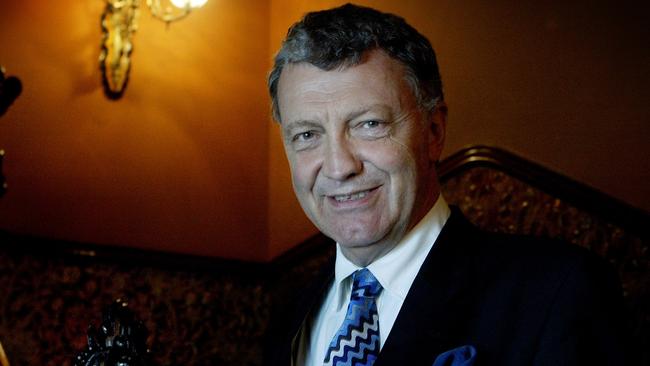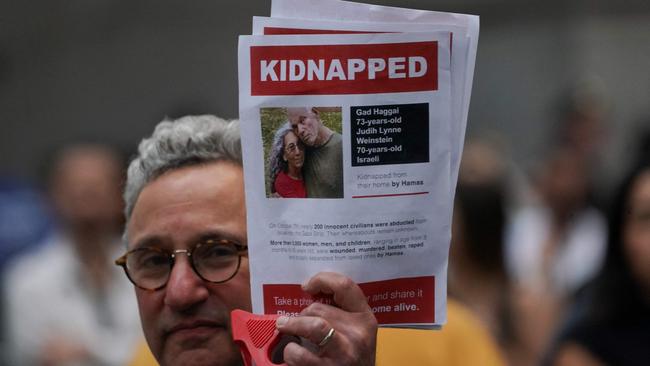Anti-western ideology infecting public sector

Now, questions have been asked in parliament after an account of the course written by a former civil servant, Anna Stanley, who participated in it a few months ago and who until this month was an open-source intelligence analyst at the Foreign Office.
In Fathom, the journal of a pro-Israel research group, Stanley wrote that although the lecturers included a previous defence minister and former senior officials at the Foreign Office, Home Office and GCHQ, some of them spouted “typical postmodern identity politics”.
Those on the course were told that labelling an organisation “terrorist” was a problem because it “implies a moral judgment”. Lecturers showed slides that stated: “Condemning terrorism is to endorse the power of the strong over the weak”, and, “terrorism is not the problem, rather the systems they oppose are terrorist”.
The course, wrote Stanley, was a “deeply, existentially depressing" experience. Extremism and terrorism, she said, were being misunderstood to the point of creating a national security risk. She found herself surrounded by civil servants who “hate the concept of the state”. Their unchallenged assumption was that Israel was a terrorist state and Hamas’s atrocities should be “contextualised”.

They accepted without demur an argument mounted by one civil service participant, whose brother had fought for Isis, that Britain’s anti-radicalisation program, Prevent, was inherently racist because it focused on Islamist extremism – mere mention of which made Muslims “feel uncomfortable”.
While lecturers gave right-wing extremism disproportionate weight, wrote Stanley, the overriding emphasis was that Islamist extremism was exaggerated. This directly contradicts the conclusion reached by Sir William Shawcross in his review last February of Prevent, which he found was dangerously underestimating Islamist extremism while exaggerating right-wing threats.
One lecturer, reported Stanley, rubbished Shawcross by describing him as “the type of person who would say all current counter-terrorism professionals are woke … he is of that ilk”. The lecturer also claimed that the British writer Douglas Murray and the American commentator Joe Rogan were both examples of the “far right.” “They have millions of followers,” he said. “To deplatform them would cause issues … so society needs to find other ways to suppress them.”

The term “far right” is routinely used to smear anyone whose attitudes challenge progressive dogma. The loudmouth and undeniably offensive Joe Rogan was more accurately described by CNN as “libertarian-leaning”.
Murray’s own thought-crime is to be a passionate and articulate supporter of Israel and a clear-sighted analyst of Islamist extremism. The similarly robust Shawcross had to fight a determined attempt by Home Office civil servants, who subscribed to the “Islamist extremism is exaggerated” mindset, to prevent his government-ordered report from ever seeing the light of day.
Shawcross and Murray play a courageous role in the struggle to defend Britain and the civilised world against its enemies. For lecturers in counter-terrorism to dismiss, smear or try to cancel them in this way shows how deeply the rot in society has penetrated.
Stanley resigned from the Foreign Office and has emigrated to Israel in despair at what she perceives as the institutionalised dogma fuelling epidemic Jew-hatred and wildly distorting Britain’s foreign policy by helping forces hostile to the West.

The universities and other institutions are riddled by anti-western thinking. But these tropes are also being used to service the agenda of Islamists intent upon undermining the free world. King’s enjoys close links with Qatar, which funds the university’s centre for global banking and finance. A decade ago, King’s had a four-year teaching contract with the Qatari government worth pounds 26 million. Professor Denise Lievesley, the dean of the university’s faculty of social sciences and public policy, called Qatar “comparatively liberal” for the region.
But Qatar funds Hamas and supports the Muslim Brotherhood, as was laid out in a 2022 Policy Exchange report by Sir John Jenkins, formerly the Foreign Office’s senior Arabist. He said that although both Conservative and Labour ministers had hailed Qatar as a “friend and partner”, it had often pursued a foreign policy at odds with British and western interests.
Significant and often disguised funding by Qatar, said the report, had been used to support Islamist groups in the US, Britain and Europe over the previous two decades. Such funding had openly supported university departments and think tanks studying “highly contested regional issues,” including King’s, Bristol University and St Antony’s College, Oxford, and built influence within parliamentary and other official circles.
Questions in parliament perhaps should go further than merely this disturbing course at King’s. Britain not only refuses to heed the warnings of people like Jenkins, but has spawned a culture that is actively helping promote the enemies of civilisation.
The Times







King’s College London is the academic centre of Britain’s military and counter-terrorism training. Its counter-terrorism course, under contract to the Ministry of Defence, has been designed for civil servants and other professionals involved in this work from a number of government departments.